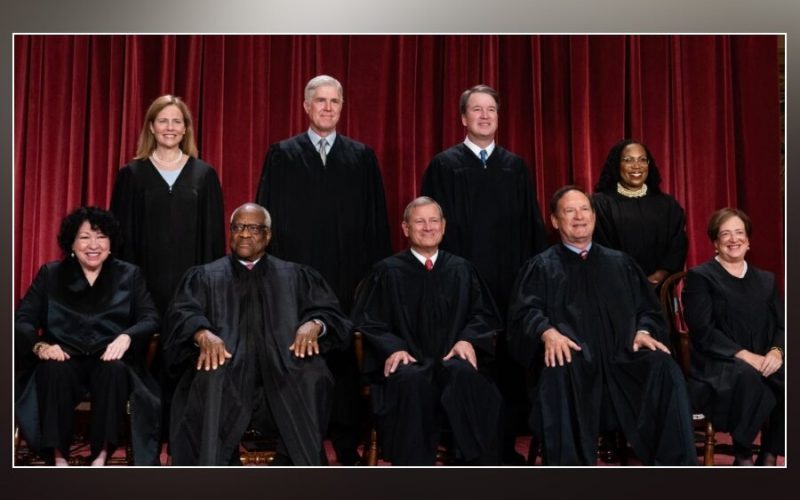On Friday, the Supreme Court lifted restrictions on the Biden administration’s ability to communicate with social media companies, all while a lawsuit claiming that numerous top federal officials pressured social media companies into censoring free speech remains unresolved.
The decision puts a temporary halt to a preliminary court order that was given in response to the conclusions of two lower courts, which described it as a “coordinated campaign” by high-ranking officials in the Biden administration to censor disfavored views expressed on social networking platforms.
The U.S. District Court for the Western District of Louisiana initially granted the preliminary injunction on July 4, and on October 3, the U.S. Court of Appeals for the Fifth Circuit unanimously affirmed this decision.
In his dissent, Justice Alito expressed concerns regarding government censorship of private speech and the risk of “heavy-handed tactics” shaping the expression of opinions in today’s era of social media.
“At this time in the history of our country, what the Court has done, I fear, will be seen by some as giving the Government a green light to use heavy-handed tactics to skew the presentation of views on the medium that increasingly dominates the dissemination of news. That is most unfortunate,” wrote Justice Alito.
The stay will remain in effect until the Supreme Court renders its final judgment. This might be sometime late in the spring of 2024, Justice Alito noted in his dissenting opinion.
“Government censorship of private speech is antithetical to our democratic form of government, and therefore today’s decision is highly disturbing,” Justice Alito wrote.
The “coordinated campaign” at the center of the landmark legal battle allegedly involved officials from the White House, the surgeon general, the U.S. Centers for Disease Control and Prevention, the FBI, and a top U.S. cybersecurity agency.
The lower courts prohibited them from “coercing” or “actively controlling” the decisions made by social media companies about the content posted on their platforms.
The case originated from allegations by Missouri and Louisiana, along with various private parties, that popular social media companies were either blocking users or downgrading posts with disfavored viewpoints on various controversial subjects.
These topics included the COVID-19 lab leak theory, pandemic lockdowns, vaccine side effects, election fraud, and the Hunter Biden laptop story.
Share your thoughts by scrolling down to leave a comment.

